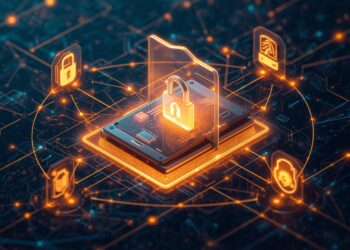A Decentralized Dilemma?
Web3 represents a new era in the digital world. It promises user empowerment through decentralization, but it also raises ethical questions. As we embrace this technology, understanding its implications becomes crucial.
Decentralization has its allure, offering more control over personal data. Yet, with benefits come anxieties. Issues like privacy, security, and environmental impact lurk in the background. We must explore these challenges while recognizing the opportunities Web3 can provide.
Defining Web3 helps clarify its ethical landscape. Unlike traditional web models, Web3 aims for a decentralized internet where users hold more power. This shift creates a new set of ethical dilemmas needing attention.
Decentralization’s Double-Edged Sword: Privacy and Security
Data Privacy Concerns in a Decentralized World
In a world where data lives on blockchains, privacy becomes a compelling issue. Blockchain’s immutability means once data is recorded, it can’t easily be altered. This characteristic can lead to challenges regarding personal data control.
Examining blockchain’s immutability and its impact on data control
Users might upload sensitive information, unaware of the permanent nature of the blockchain. Without the ability to delete records, individuals may find their privacy compromised.
Case study: Analyzing a real-world data breach in a Web3 application
Consider the infamous data breach at a prominent Web3 startup. Hackers stole user data, revealing weaknesses in decentralized systems. This incident emphasizes the importance of security measures and vigilance in Web3 applications.
Security Risks and Vulnerabilities
Smart contracts are crucial to Web3, but they are not foolproof. Vulnerabilities can lead to significant losses. The ethical implications of these exploits highlight the need for robust security practices.
Smart contract exploits and their ethical ramifications
When hackers exploit smart contracts, users face financial losses. The ethics of holding developers accountable for these vulnerabilities becomes a heated debate in the community.
The role of decentralized autonomous organizations (DAOs) in mitigating risks
DAOs can play a significant role in risk management. By allowing collective decision-making, they can better identify vulnerabilities and establish protocols that protect users.
Environmental Impact of Web3: The Energy Consumption Debate
Blockchain’s Energy Footprint: A Critical Assessment
Energy consumption is at the forefront of discussions around Web3. Different blockchain networks consume various amounts of energy, raising environmental concerns.
Statistics on energy consumption of various blockchain networks
For example, Bitcoin’s proof-of-work mechanism consumes about 90 terawatt-hours annually. In contrast, Ethereum’s shift to proof-of-stake aims to reduce this footprint significantly.
Comparing Proof-of-Work vs. Proof-of-Stake consensus mechanisms
Proof-of-work requires intense computational power and energy, while proof-of-stake is more energy-efficient. This shift could redefine how blockchain networks approach sustainability.
Sustainable Web3 Solutions: Exploring Eco-Friendly Alternatives
Examining initiatives aimed at reducing blockchain’s carbon footprint
Innovative projects are exploring eco-friendly solutions. For instance, initiatives like the Energy Web Foundation focus on sustainable energy for blockchain operations.
The potential of renewable energy sources in powering Web3
Renewable energy has the potential to power blockchain technologies. By utilizing solar, wind, or hydroelectric power, we can decrease the carbon footprint of Web3 significantly.
Transparency and Inclusivity: Bridging the Web3 Divide
The Promise of Transparency: Openness and Accountability in Web3
Web3’s structure promotes transparency and accountability like never before. This openness can revolutionize industries.
Exploring the potential of blockchain for increased transparency in supply chains
For example, blockchain can track products from creation to delivery. This traceability fosters trust among consumers, improving brand accountability.
Examining the role of DAOs in fostering democratic decision-making
DAOs can enhance transparency within organizations. By enabling stakeholders to participate in decision-making, these groups pave the way for fairer practices.
Addressing Accessibility and Inclusivity Challenges
Despite its promise, Web3 faces challenges in accessibility. Not everyone can participate in this new technology due to various barriers.
The digital divide and its impact on Web3 participation
The digital divide affects lower-income individuals, limiting their access to Web3 platforms. This inequality raises ethical questions concerning diversity and representation.
Strategies for promoting equitable access to Web3 technologies
To bridge this gap, education and resources are essential. Initiatives that provide training and free access to technology can empower underrepresented communities to engage with Web3.
Ownership and Intellectual Property in the Metaverse
NFTs and Copyright Infringement: Navigating Ownership Rights
Non-fungible tokens (NFTs) revolutionize ownership in the digital world. However, copyright infringement remains a significant concern.
Examining legal challenges surrounding NFT ownership and copyright protection
The legal landscape of NFTs is murky. Artists often find their work stolen and sold as NFTs, leading to intense debates over ownership rights.
Case study: A high-profile legal battle involving NFTs and intellectual property
A notable case involved a famous artist suing an NFT marketplace for copyright infringement. The outcome of this case could set important precedents for protecting artists in the digital realm.
Decentralized Governance and Intellectual Property Rights
Decentralized governance offers solutions for managing intellectual property. DAOs can provide frameworks for protecting creators’ rights.
The role of DAOs in managing intellectual property within Web3 ecosystems
By using DAOs to vote on copyright issues, communities can collaboratively establish fair practices. This model ensures that creators’ voices are heard.
Exploring potential solutions for protecting intellectual property in the metaverse
Innovative mechanisms, like NFT gateways, can help safeguard intellectual property. These solutions ensure artists receive credit and compensation for their work.
The Future of Web3 Ethics: Collaboration and Regulation
The Need for Ethical Frameworks and Guidelines
As Web3 continues to grow, so does the need for ethical guidelines. Without standards, developers may unintentionally harm users.
Examining existing regulatory efforts aimed at governing Web3 technologies
Regulatory bodies are beginning to address Web3. They explore how to create frameworks that protect consumers without stifling innovation.
The role of industry self-regulation in fostering ethical practices
Industry self-regulation also plays a key role. Organizations can establish their own guidelines, encouraging ethical behavior among developers and users.
Collaboration and Community Engagement: Shaping a Responsible Web3
Collaboration fosters responsible growth in Web3. Community involvement is crucial in crafting ethical standards.
The importance of community involvement in setting ethical standards
Communities can discuss their values and establish best practices. This dialogue is essential for creating a balanced ethical framework.
Individuals and organizations to promote ethical Web3 practices
Individuals and organizations can take steps like sharing knowledge and resources to promote ethical practices in Web3. Encourage open conversations and advocate for transparency in decision-making.
Conclusion: Embracing the Promise, Mitigating the Risks
Web3 holds immense potential, but it also introduces complex ethical challenges. Balancing its opportunities with risks is essential for responsible development.
Key Takeaways: Ethical Considerations for Web3 Development and Adoption
- Privacy and Security: Understand the implications of immutability and vulnerabilities.
- Environmental Impact: Embrace renewable energy solutions to mitigate blockchain’s footprint.
- Transparency and Inclusivity: Promote accessibility and democratic participation in Web3.
- Ownership: Navigate intellectual property rights and protect creators in the metaverse.
- Collaboration: Engage communities to shape ethical frameworks that guide Web3 growth.
Looking Ahead: The Ongoing Evolution of Web3 Ethics
The world of Web3 will continue to evolve. Staying informed and engaged is vital as we shape its ethical future. Together, we can harness its power while addressing the challenges ahead.

























